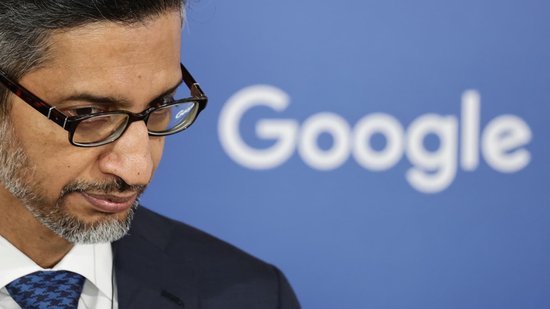A federal judge ruled on Tuesday that Google can keep its Chrome browser, but will be prohibited from exclusive contracts and must share search data.

Shares of Google's parent company, Alphabet, surged 6% in after-hours trading following the ruling.
U.S. District Judge Amit Mehta rejected the U.S. Department of Justice's (DOJ) harshest penalty recommendation, which included requiring Google to divest Chrome, which provides data that helps Google's advertising business target ads.
The ruling reads: "The Court does not require Google to divest Chrome; nor will the final judgment include a contingent divestiture provision for the Android operating system. Plaintiffs' (DOJ) request to force the divestiture of these core assets goes beyond reasonable bounds, and Google has not used them to impose any unlawful restrictions."
The ruling states that Google can pay partners to pre-install its products, but is prohibited from exclusive contracts.
The US Department of Justice had demanded that Google cease its practice of "forced co-promotion," which involves striking specific agreements with other companies to ensure its search engine remains the default choice in browsers and smartphones.
Google pays Apple billions of dollars annually to be the default search engine on iPhones. This represents a lucrative revenue stream for Apple and a crucial way for Google to increase search volume and user base.
Apple's stock price rose 8% after the market closed following the ruling on Tuesday.
In 2020, the US Department of Justice filed this landmark lawsuit, accusing Google of maintaining its dominant market share in general search by creating high barriers to entry and a self-reinforcing monopoly cycle.
In August 2024, the US District Court for the District of Columbia ruled that Google violated Section 2 of the Sherman Antitrust Act, which prohibits monopolistic practices, and determined that Google held an unlawful monopoly in its core business, internet search.
In May of this year, Judge Mehta presided over a remedial hearing, during which both parties proposed penalties for Google arising from the antitrust ruling. At the hearing, the U.S. Department of Justice asked the judge to force Google to share the data it uses to generate search results, such as user click behavior.
Google said it would appeal the ruling, which would delay the implementation of any potential penalty.

%20--%3e%3c!DOCTYPE%20svg%20PUBLIC%20'-//W3C//DTD%20SVG%201.1//EN'%20'http://www.w3.org/Graphics/SVG/1.1/DTD/svg11.dtd'%3e%3csvg%20version='1.1'%20id='图层_1'%20xmlns='http://www.w3.org/2000/svg'%20xmlns:xlink='http://www.w3.org/1999/xlink'%20x='0px'%20y='0px'%20width='256px'%20height='256px'%20viewBox='0%200%20256%20256'%20enable-background='new%200%200%20256%20256'%20xml:space='preserve'%3e%3cpath%20fill='%23FFFFFF'%20d='M194.597,24.009h35.292l-77.094,88.082l90.697,119.881h-71.021l-55.607-72.668L53.229,232.01H17.92%20l82.469-94.227L13.349,24.009h72.813l50.286,66.45l58.148-66.469V24.009z%20M182.217,210.889h19.566L75.538,44.014H54.583%20L182.217,210.889z'/%3e%3c/svg%3e)